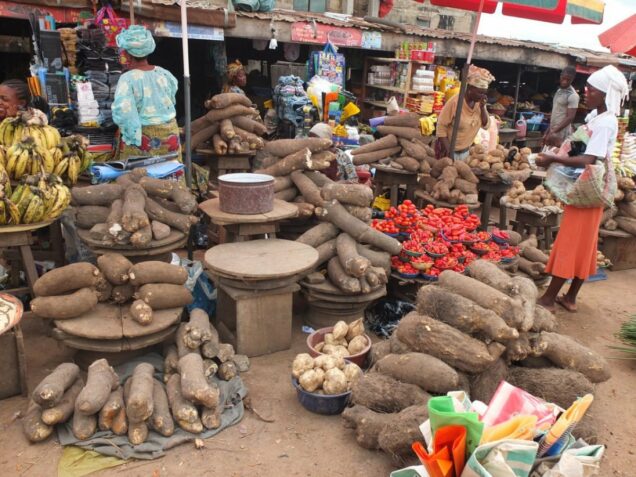
Despite recent moves by Central Bank of Nigeria (CBN) to stabilise the naira, Nigerians are still experiencing the worst food inflation in decades amid economic downturn.
In this article, TRIBUNE ONLINE seeks to answer the question why food inflation despite naira appreciation?
Background
Data from the National Bureau of Statistics showed that the annual food inflation rate was 35.41% in January, 11.9% higher than January 2023 (24.32%).
At the state level, the food inflation rate was the highest in Kogi (44.18%), Kwara (40.87%), and Rivers (40.08%), while the lowest annual rates of food inflation were recorded in Bauchi (28.83%) Adamawa (29.80%), and Kano (30.08%). It is clear, however, that food inflation is a country-wide phenomenon.
Rising inflation and slow growth have caused the number of impoverished Nigerians to rise from 89.8 million at the beginning of 2023 to 104 million, according to the World Bank’s most recent Nigeria Development Update report.
Why food inflation
Economists have stated that it will take some time for Nigerians to feel the impact of the current strengthening of the naira against the dollar on the prices of commodities in the country.
The reasons, for them, depend on several factors such as weakening naira, insufficient domestic agricultural production, and an over-reliance on expensive imported food, amongst others.
Exchange rate instability
“Foods that have been bought at the old exchange rate will still be tied to the old exchange rate.
“Whether a month or a quarter, it depends on the duration it takes to order and sell. The effect we should hope to see is that the prices have stopped going up. We call it acceleration,” Chief Executive Officer of Economic Associates, Ayo Teriba told PUNCH.
Another expert, President of Nigerian Economic Society, Adeola Adenikinju, highlighted the economic rationale behind the delay in price adjustments.
According to him, “What people have in stock now was purchased at high prices. If they sell at lower prices, they are going to record losses.
“So until they replace the current one, that is when they will reduce their prices”.
Manufacturing deficiency
Lending her voice on the subject matter, the director at Cutix Plc., Mrs Ijeoma Ezeasor, said the advent of Covid-19 created some problems relating to the supply chain that are still affecting manufacturers in Nigeria today. She noted that foreign exchange instability, especially at the ports, perpetrated by Nigeria Customs Service puts manufacturers in a bad position for competition.
“As a result, final consumers are finding it difficult to purchase the final products, which leave much food in the warehouses of food manufacturers,” she told Nairametrics.
Other factors such as non-state actors, corruption, and bad roads are also major contributors to the food inflation in the country.
Way forward
The Bola Tinubu-led administration needs a comprehensive approach that empowers farmers, enhances security, and promotes sustainable practices to address the food inflation crisis in the country.










